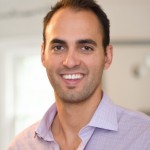Paul Hrkal, ND
After 1 year of working as a full-fledged ND, I felt like I needed to share with my colleagues some of the things that I have experienced and learned since graduation and passing the Naturopathic Physicians Licensing Examinations. Despite only having 1 year of experience under my belt, I am in a unique position of using my naturopathic training and expertise in a variety of ways. I have had the opportunity to be a medical consultant for a company in the natural health product industry, I maintain a part-time practice in a successful integrative clinic, and I lecture to both public and professional audiences. Particularly, my role as medical consultant has allowed me a chance to travel across the country, visiting many different health clinics and various practitioners. I have had a chance to speak to new NDs who are trying to find a way to make ends meet and build a practice and also to be successful NDs, integrative MDs, and DCs. This unique perspective has allowed me to observe a few elements that create a successful naturopathic business and a thriving practice.
My goal is to share some of the lessons and tips I have had a chance to learn with students and new grads as they also try to find a way to grow their business. I think it is no secret that the first 3 years are pivotal and most challenging in any aspiring ND’s career. Currently, the first few years after graduation have become almost a painful right of passage, where new grads struggle to pay off school debts and build a practice. Unfortunately, we are all familiar with difficulties to grow a profitable practice and generate adequate income in the years after graduation. As a profession, there is a growing realization that we need to narrow the gap between struggling new grads and established NDs. My hope is that by sharing my own experiences and some of my observations of successful NDs we may be able to close that gap and propel new NDs to succeed sooner than later.
Find Your Identity and Do Not Try to Be Everything to Everyone
One of the most common characteristics of the most successful NDs is that they all have created an identity and a reputation that are specific to their style of practice. Sometimes, it is a focus on a specific pathology such as cancer or women’s health, but more often it is a professional style that is synonymous with them. More importantly, they know what they are not and do not lose focus on what has made them successful. Find what works for you, and build around that.
An example is to identify your clinical passion and target your treatment style, marketing efforts, and website to suit that indication. I have been drawn to healthy aging, memory, and cognitive function, so I contacted the local Canadian Alzheimer Society chapter to offer nutritional education for their community events and print media. I also pursued additional training in applicable therapies such as infusion and intravenous treatments. I have not actively contacted women’s and children’s groups since that is not something I want to focus on, even though there has been opportunity.
Atmosphere Is Key
A patient’s experience begins as soon as he or she enters a physician’s office. A courteous and warm greeting by clinic staff often makes the biggest and most lasting impression. Smart decor and soft music make a big difference, but I have found that the key to creating a positive and warm atmosphere starts with the attitude of the clinic leadership. The rest of the staff take their cues from the practitioners.
For example, some of the best clinics I visited have a receptionist who welcomes you with a warm greeting (despite being a company representative) and offers complimentary tea and refreshments. Also, another nice touch
is when other physicians and staff
greet you in the waiting room even if they do not know you or you are not their patient.
Fortune Favors the Bold
This is not just a saying that applies to the ancient Romans but also to successful practitioners and business owners. So often, key business connections are gained after boldly going after an opportunity. Be confident in your talents and skills. You are capable of delivering that talk, helping a company, or writing that article. Just go for it!
As an example, I agreed to do a speaking event for a pharmacy company that works with long-term care nursing homes for a group of 150 nurses and pharmacists. Though the task and group were daunting, that one lecture turned into booking more than 10 other events with that same group over the next year. A door would not have opened if I had not offered and taken that first, intimidating step.
Be Comfortable With Sales
One of the key elements that one of my mentors pointed out very early on is that you need to be comfortable with “selling yourself” and the exchange of your services for money. Any business, including naturopathic practice, is about selling and delivering a high-quality product, which in our case is ourselves. All NDs are selling themselves (their clinic, the staff, their appearance, the ability to help a patient, etc) to existing and prospective patients. We often have to “sell” or motivate patients to buy into challenging lifestyle changes and treatment plans. Many new NDs are afraid of this reality since the role of sales is often perceived to have a negative stigma or because they lack the confidence in their ability. The sooner new grads become comfortable with this aspect of their business, the sooner they will reap the benefits of a thriving practice.
For example, the clinicians at our clinic have started the habit of promoting upcoming workshops to patients as they check out after a visit, even if it does not involve the physician directly. The patients walk away with an invitation to an event that is added value to them and their families. It works in your favor as the workshops help them learn practical skills to implement a healthy lifestyle, promote a sense of community among patients, and position your clinic as a main source for all their health needs.
Use Trackable and Visible Testing Methods
After visiting many thriving and successful practices, another common factor I observed is that they all use some form of functional laboratory or bioenergetic testing that can be done in the office. It can be as simple as a point-of-care cholesterol test or more complex energetic and microscopy testing. Initially, as most new grads are, I was skeptical about these testing methods, but I quickly learned that, though not essential to a diagnosis, these in-office tests give physicians and patients tangible and personalized results that can be tracked over time. Without getting into the debate of whether some of these techniques are fully “evidenced based,” they can provide one piece of information in a patient’s case that can then be used by a diligent ND to formulate a treatment plan based on all available subjective and objective information.
An example is that many established NDs use a bioenergetic technique or dark-field microscopy as an in-office test, which gives patients a personalized assessment of how their body systems are functioning. Patients like the real-time visible results, and you can use the test as a measure of improvement over time, which further builds trust and rapport.
Get Involved in Your Profession
It is no coincidence that some of the most successful NDs in the country are also involved in professional organizations on the provincial or state and national levels. Many of these NDs share a common goal for all members of the naturopathic profession to be successful. I know that the financial and time commitment can be a deterrent, but the effort will pay dividends in the future. At the very least, it puts you in touch with your colleagues, builds relationships, and gives you the chance to pick up tips from more experienced practitioners. Remember that you become as successful as the people you associate with.
For example, getting involved with the Ontario Association of Naturopathic Doctors (now called Naturopathic Doctors of Ontario) allowed me to be introduced to fellow NDs even if it was only just knowing a face and name. This proved beneficial to me as I visited a number of them through my work as nutraceutical medical consultant. They recognized me when I visited their office, and there immediately was a greater degree of rapport.
Find a Mentor
This may be the most important thing you do in the first few years of practice. Almost all of the successful practitioners with whom I have spoken had a mentor figure in the profession at some point on their journey. I personally have found this to be the most helpful and comforting factor in my first year of practice. I was able to share ideas and get clinical advice, instead of stumbling through trial and error. Interestingly, I have found that most established NDs are willing to share their pearls and experiences with new grads. This is another reason to be bold, ask someone you resonate with, and get involved in professional associations.
Diversify
One of my key strategies in the past year has been to get my hands in multiple cookie jars to generate various streams of income. The concept of diversifying your income is common practice in the investment and financial world, and it holds value for NDs. Especially early after you graduate and begin to practice, it is difficult to generate income solely from patient visits. There are many ways that you can leverage your skills and training as an ND. These include government positions, medical consulting, health product companies, public speaking, insurance companies, sports teams, teaching opportunities, and many others that can help pay the bills, grow your practice, and give you valuable experience. Be strategic and bold, but be careful not to overcommit if you cannot deliver.
As an example, the most successful NDs have a source of income other than their clinical practice. Many act as consultants for nutraceutical companies or are active in education, for which they are paid. This takes some financial pressure off your clinical income and gives you a break from seeing patients (burnout among physicians is quite common). It also challenges you to grow in unique ways that are not addressed by clinical practice. You have a chance to meet new people, build professional relationships, and hone your communication skills.
Embrace the Future
While in school, I never thought I would be using Facebook and Twitter to promote my practice and professional services, but that changed this past year. Many more patients are finding their NDs online and in the social media realm. New NDs have to have a web presence to help grow their practice and build their business. Patients now understand hashtags and blogs better than print articles and flyers.
For example, I found that using a social media dashboard (such as HootSuite or Threadsy) makes posting on Twitter and Facebook simple and organized. You can also schedule times for future posts, so you do not have to log on every day and still keep a steady stream of content.
Share the Wealth
At some point, you will realize that you are the experienced ND, and a new grad will approach you to preceptor or ask you a question. It may be sooner than you think; it may even be now. We each have invaluable experiences to share with each other to promote growth and success in our profession. One of the greatest blessings in the past year has been the willingness and openness of established NDs to share their knowledge and expertise. If we all do our part, we can propel the naturopathic profession to greater success.
As an example, writing this article was my way of sharing some of the knowledge that has been shared with me by so many generous NDs. I did not know if I had enough relevant information to share, but I decided to be bold and share the wealth.
A Thriving Profession
I hope these points shared some wisdom that I have had the privilege of encountering in the past year. I believe that if we overcome our tendency to only focus on our own bubble and we embrace the common goal to make other NDs around us more successful, we will find that it will come back to us many times over. New grads can be a particularly vulnerable group when trying to build their business. Employing some straightforward practice points discussed in this article, we can help even new grads succeed in generating a healthy income and building a successful practice. If new and experienced NDs continue to work together, we can close the gap in building a thriving naturopathic business and profession.

Paul Hrkal, ND is a board-certified naturopathic physician and is an active member of the Naturopathic Doctors of Ontario. He graduated from McMaster University (Hamilton, Ontario, Canada) with a degree in kinesiology and then went on to complete his medical studies at the Canadian College of Naturopathic Medicine, in Toronto, Ontario. Dr Hrkal is an expert in nutritional and supplemental therapies and has additional training and certification in intravenous and injection therapies. He has a special interest in the application of functional and nutritional medicine in providing high-quality patient-centered care. He also is a strong advocate of integrative medical education and lectures regularly to both healthcare practitioners and public audiences. He currently is a medical advisor for Advanced Orthomolecular Research and maintains a clinical practice in the Toronto area at an integrative health clinic.























